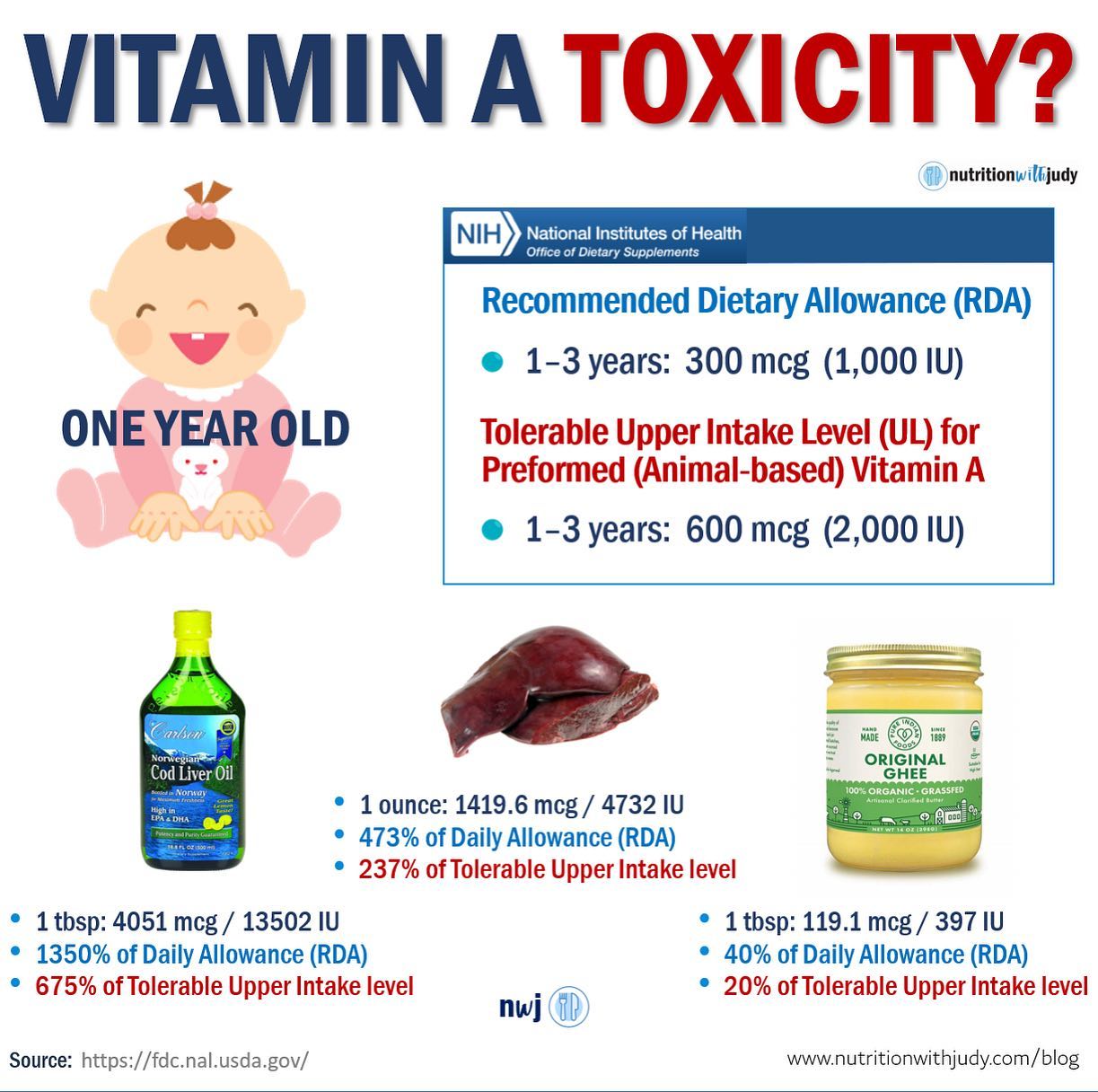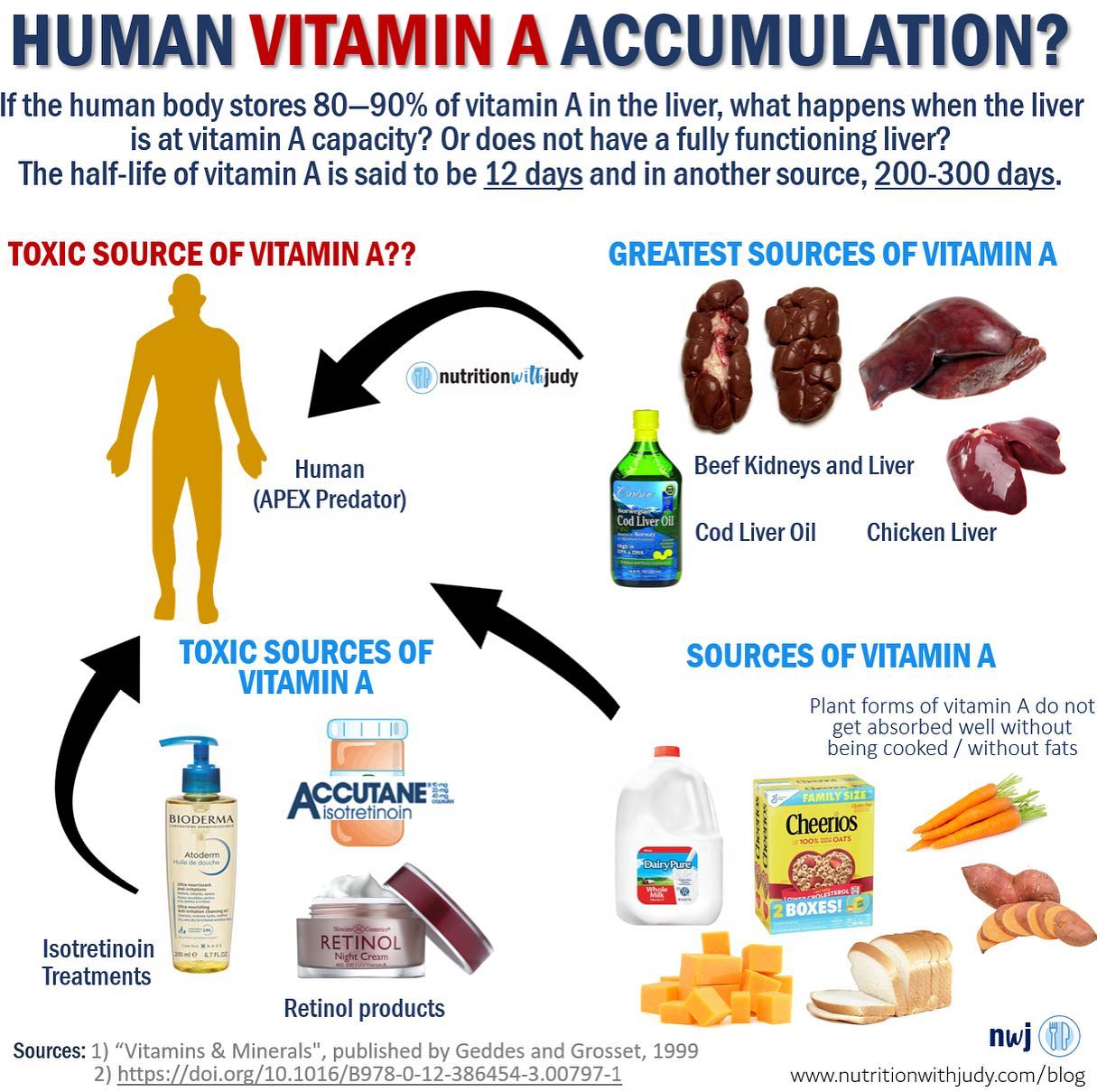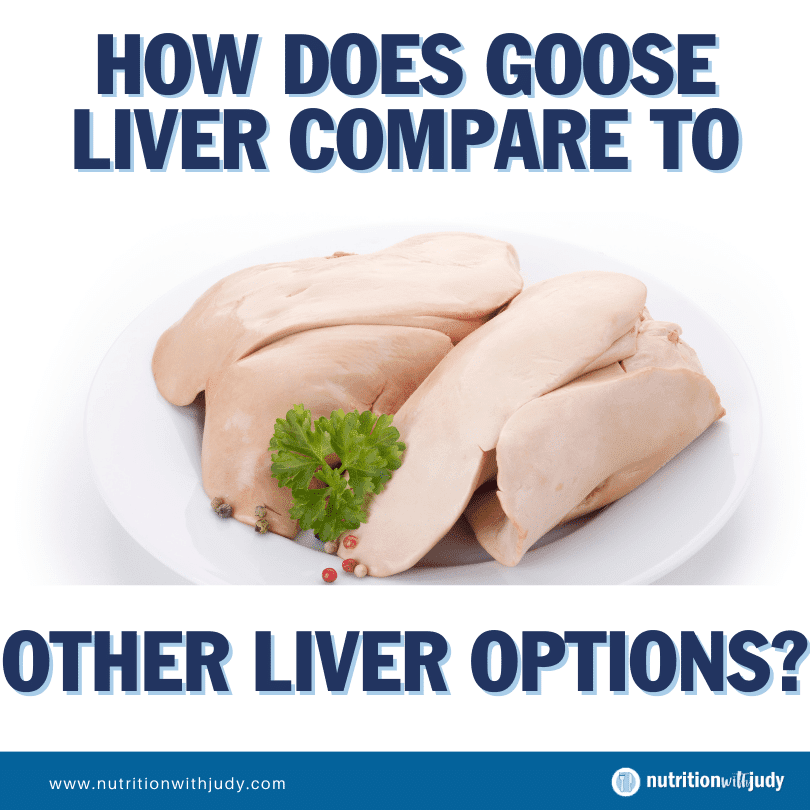

How Does Goose Liver Compare to Other Liver Options?


In the world of the carnivore diet, the inclusion of organ meats such as goose liver offers a unique nutritional profile that can be particularly beneficial for those seeking to address nutrient deficiencies or support certain health conditions. While some individuals incorporate organ meats such as goose liver into their regimen purely for enjoyment, others may opt for organ meats therapeutically.
However, it’s important to note that consuming organ meats is not required for success on a carnivore diet. Many individuals thrive on a carnivore diet without the inclusion of organ meats, achieving optimal health through a focus on high-quality animal products.
Let’s take a closer look at how goose liver stands in comparison to other popular organ meats, shedding light on its nutritional value and how it can fit into a carnivore diet framework for those interested in incorporating it.
What Is the Carnivore Diet?
The carnivore diet, centering on animal-based foods, caters to a variety of preferences and health objectives through its diverse approaches, each with distinctive benefits:
The Beef-Only Carnivore Diet
Focused solely on beef, this method is prized for its straightforwardness and effectiveness, particularly for those addressing autoimmune or chronic conditions. It’s an excellent starting point for dietary elimination, though we advise broadening to a mix of meats over time for nutritional completeness.
The Lion Diet
Representing a more stringent carnivore practice, it restricts intake to ruminant meats, salt, and water, making it an ideal elimination diet basis, with the option to gradually reintroduce other meats. The lion diet is particularly recommended for individuals targeting autoimmune and digestive healing.
Nose-to-Tail Carnivore Diet
Advocates for consuming the entire animal, including organ meats, to maximize nutrient intake. However, it’s important to monitor liver and kidney consumption to avoid potential nutrient excesses, such as vitamin A toxicity.
Meat-Only Carnivore Diet
This diet includes all types of animal muscle meat while excluding organ meats, dairy, and eggs, suited for those seeking a basic elimination diet and who are tolerant of a variety of muscle meat.
The Zero-Carb Carnivore Diet
Emphasizes foods with negligible carbohydrates, incorporating dairy, eggs, and all meats, and may include certain seasonings. This variant is suitable for those without autoimmune or severe chronic conditions who can tolerate dairy and/or eggs.
The Carnivore Keto Diet
The carnivore keto diet merges low-carb, high-fat ketogenic principles with the carnivore diet, integrating keto-friendly, low-toxicity plant foods such as avocados and coconut oil. It’s ideal for metabolically healthy individuals who have addressed their chronic health issues.
The Carnivore-Ish Keto Diet
Offers greater flexibility by incorporating more ketogenic elements alongside a predominantly animal-based diet, including alternative sweeteners and some nuts. Recommended for metabolically healthy individuals free from food addiction.
Animal-Based Diet
This broader approach focuses on animal products while allowing fruits, honey, and raw dairy, often only suitable for highly metabolically flexible individuals and elite athletes. We generally don’t recommend this variation due to the risks of mixing high fat with fruit.
Each of these variations provides a tailored approach to meet individual dietary needs and health goals, emphasizing the adaptability and personalized nature of the carnivore diet.
What Are the Benefits of the Carnivore Diet?
Beginning your carnivore diet journey presents multiple health benefits, providing a transformation in both physical and mental well-being for many. This way of eating, focuses exclusively on animal-based foods, offering a simplistic yet highly nutritious approach to eating, and provides a compelling alternative for those seeking to optimize their health. Here are some of the key benefits that draw individuals to the carnivore diet:
- Nutrient Density: Animal products are rich in essential nutrients that are bioavailable and easily absorbed by the body. This includes high-quality protein, essential fatty acids, vitamins (such as B12, D, and A), and minerals (such as zinc, iron, and selenium), all crucial for optimal health.
- Elimination of Anti-Nutrients: By excluding plant-based foods, the carnivore diet naturally eliminates anti-nutrients such as lectins, phytates, and oxalates, which can bind to minerals and reduce their absorption, potentially leading to digestive distress and nutrient deficiencies.
- Improved Digestive Health: We have found that many people report significant improvements in digestive issues, such as bloating, gas, and irritable bowel syndrome (IBS), upon adopting a carnivore diet. The exclusion of fibrous plant materials can lead to a reduction in fermentation in the gut, thus alleviating symptoms of digestive discomfort.
- Weight Loss and Body Composition: The high satiety levels of protein and fats can help regulate appetite and reduce overeating, leading to weight loss and improvements in body composition without the need for calorie counting or portion control.
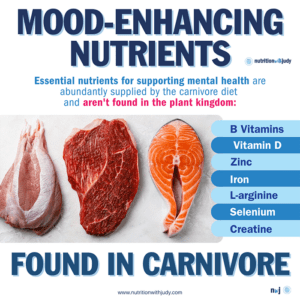

- Mental Clarity and Mood Stabilization: In our clinical practice, the carnivore diet can enhance mental clarity and stabilize mood swings. The elimination of sugar and processed carbohydrates does stabilize blood sugar levels, reducing symptoms of anxiety and depression for many individuals.
- Reduction in Inflammation: The diet’s focus on animal fats and proteins, while avoiding inflammatory plant-based foods, can lead to a reduction in systemic inflammation, benefiting conditions such as arthritis, autoimmune diseases, and other inflammatory conditions.
- Simplicity and Convenience: The carnivore diet offers a simple approach to eating that eliminates the need for complicated meal planning or tracking of macronutrients, making it appealing for individuals looking for an uncomplicated dietary regimen.
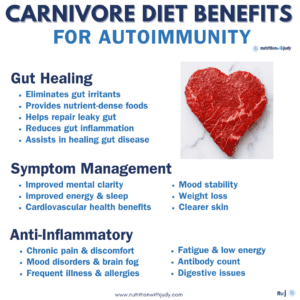

- Ideal for Autoimmune and Chronic Disease: The elimination diet aspect of the carnivore diet can help identify food triggers for autoimmune and chronic conditions, leading to potential remission or significant symptom reduction in diseases such as rheumatoid arthritis, lupus, and type 2 diabetes.
- Improved Insulin Sensitivity: By eliminating sugar and carbohydrates, the carnivore diet can help improve insulin sensitivity, reducing the risk of metabolic syndrome, type 2 diabetes, and other insulin-related issues.
- Enhanced Physical Performance and Recovery: The high protein content supports muscle repair and growth, potentially enhancing physical performance and recovery for athletes and individuals engaged in regular physical activity.
The carnivore diet’s benefits are vast and varied, addressing numerous aspects of health from nutrient density to improved mental clarity. It’s a testament to the diet’s ability to provide a solid foundation for health, offering a compelling reason for individuals to consider this way of eating.
We believe that the carnivore diet represents a pathway to resolving persistent health issues and achieving a higher quality of life.
Should I Include Organs In My Carnivore Diet
We believe that incorporating organ meats into a carnivore diet reflects the principle of bio-individuality, acknowledging that the effects and benefits of such practices can vary widely among individuals. While organ meats such as liver and kidney are rich in essential nutrients, they also pose specific challenges, including the risk of vitamin A toxicity. It’s crucial to recognize that although these organs are nutrient-dense, their intake must be tailored to individual health needs and tolerances to prevent potential negative outcomes, such as vitamin A overload, which can lead to significant health issues.
Vitamin A toxicity is a serious concern associated with the overconsumption of certain organ meats, notably liver and kidney, which are exceptionally high in vitamin A. Symptoms of toxicity can include headaches, dizziness, nausea, and in severe cases, liver damage. This risk emphasizes the importance of moderation and the concept of eating organ meats in proportion to their occurrence within the whole animal. Essentially, one should mirror the natural availability of these organs, rather than consuming them in excess.
We advocate for the consumption of organ meats based on personal taste preferences, nutritional needs, and under the guidance of a healthcare practitioner, especially for individuals seeking to address specific health conditions. The idea is not to force oneself to eat organ meats but to incorporate them into your diet if they are enjoyable and align with your health goals. For those who do choose to include organ meats, doing so in a balanced and informed manner can provide significant health benefits.
Goose Liver Nutrients
Goose liver, a delicacy in many cuisines, is a nutrient-dense food offering a plethora of health benefits. Rich in essential vitamins and minerals, it stands out as a superfood in the organ meat category. Goose liver is particularly high in vitamin A, which is crucial for maintaining healthy vision, skin, and immune function. It’s also an excellent source of vitamin B12, essential for nerve function and the production of DNA and red blood cells, potentially aiding in preventing anemia.
Furthermore, goose liver contains significant amounts of folate (vitamin B9), which is vital for cell division and the prevention of congenital disabilities during pregnancy. The presence of iron in goose liver contributes to the prevention of anemia and the promotion of healthy blood circulation, delivering oxygen efficiently throughout the body.
Goose liver is also a good source of copper, a trace mineral that plays a key role in energy production, brain health, and the immune system. Additionally, the high levels of selenium found in goose liver support thyroid function and antioxidant defenses, protecting the body against damage from free radicals.
Goose liver can be a culinary delight in addition to a powerhouse of nutrition, offering benefits ranging from improved vision and brain health to enhanced immune function and antioxidant protection.
Goose Liver vs. Chicken Liver
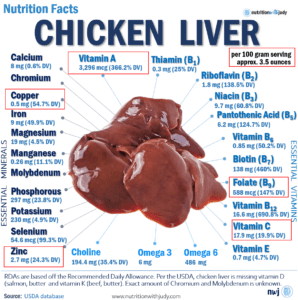

Both goose liver and chicken liver are highly nutritious, offering a range of health benefits, but they do have some nutritional differences that might influence one’s choice depending on dietary needs and health goals.
Goose Liver
Renowned for its rich, buttery flavor, goose liver is particularly high in vitamin A. It also contains a good amount of vitamin B12, essential for brain health and the formation of red blood cells, as well as iron, which is crucial for oxygen transport in the body. Additionally, goose liver is a source of folate and other B vitamins, supporting cellular function and energy metabolism.
Chicken Liver
Chicken liver, while also nutrient-dense, is known for its higher concentration of vitamin B12 compared to goose liver, making it an excellent choice for supporting nerve health and the production of DNA. It’s also rich in iron, promoting healthy blood circulation, and contains significant amounts of vitamin A, though typically less than goose liver. Chicken liver provides a robust profile of other B vitamins and minerals, including selenium, which supports antioxidant activity and thyroid function.
Due to its higher vitamin A content compared to chicken liver, it’s best to be considerate of how much goose liver you’re ingesting to avoid vitamin A toxicity risks.
Goose Liver vs. Beef Liver
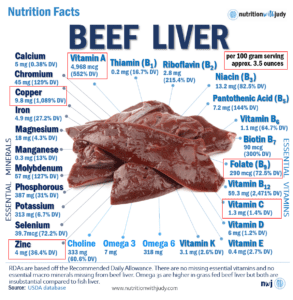

Comparing goose liver to beef liver reveals distinct nutritional profiles, each offering unique health benefits. While both are considered nutrient-dense, their vitamin and mineral contents differ significantly, catering to varied dietary needs and health objectives.
Beef liver stands out as one of the most nutrient-rich foods available. It surpasses goose liver in vitamin B12 concentration, making it an excellent choice for energy metabolism and cognitive health. Beef liver is also a superior source of iron, which is essential for combating anemia and enhancing oxygen transportation in the body. It also contains high levels of vitamin A, albeit usually in lower amounts than found in goose liver, and is rich in other vitamins and minerals, including vitamin D, zinc, and selenium.
Since both beef liver and goose liver contain high amounts of vitamin A, we generally recommend opting for chicken liver instead. Especially for individuals eating organ meats regularly, be mindful to avoid vitamin A toxicity.
Closing Thoughts On Goose Liver and Other Liver Consumption On the Carnivore Diet
The inclusion of liver, such as goose and chicken liver, within the carnivore diet emphasizes a bio-individual approach. Goose liver, celebrated for its luxurious texture and rich flavor, offers a significant source of vitamin A, alongside other vital nutrients including vitamin B12, folate, and copper. However, its high vitamin A content necessitates cautious consumption to avoid potential toxicity risks, advocating for moderation and balance in dietary inclusion.
Comparatively, chicken liver is recommended for its milder taste and high nutrient profile, including essential vitamins and minerals such as vitamin B12 and iron, making it a more palatable and versatile option for many. The discussion extends to the comparison between goose liver and beef liver, highlighting beef liver’s broader nutrient spectrum but acknowledging goose liver’s unique nutritional offerings and culinary appeal. Chicken liver is the option we recommend out of all three. When it comes to organ meats, it’s essential to find the highest quality available.
Work With Our Trusted Carnivore Diet Functional Nutritional Therapy Practitioners
The Nutrition with Judy practice is honored to be a trusted carnivore diet practitioner support serving clients from around the globe. We’re passionate about helping our clients achieve root-cause healing in order to lead the best quality of life possible that’s nearly symptom-free. Our team is dedicated to helping our clients personalize their carnivore diets for optimal results. We welcome you to explore our free resources and are always available to support you through personalized protocols. Our Symptom Burden Assessment (SBA) is the perfect starting point for discovering your root cause and is required to work with our team— you can learn more in-depth about this powerful tool here.
Start your root-cause healing journey today and contact us any time with any questions or concerns.
DISCLAIMER: This content is for educational purposes only. While we are board-certified in holistic nutrition and are nutritional therapy practitioners, we are not providing medical advice. Whenever you start a new diet or protocol, always consult with your trusted practitioner first.


